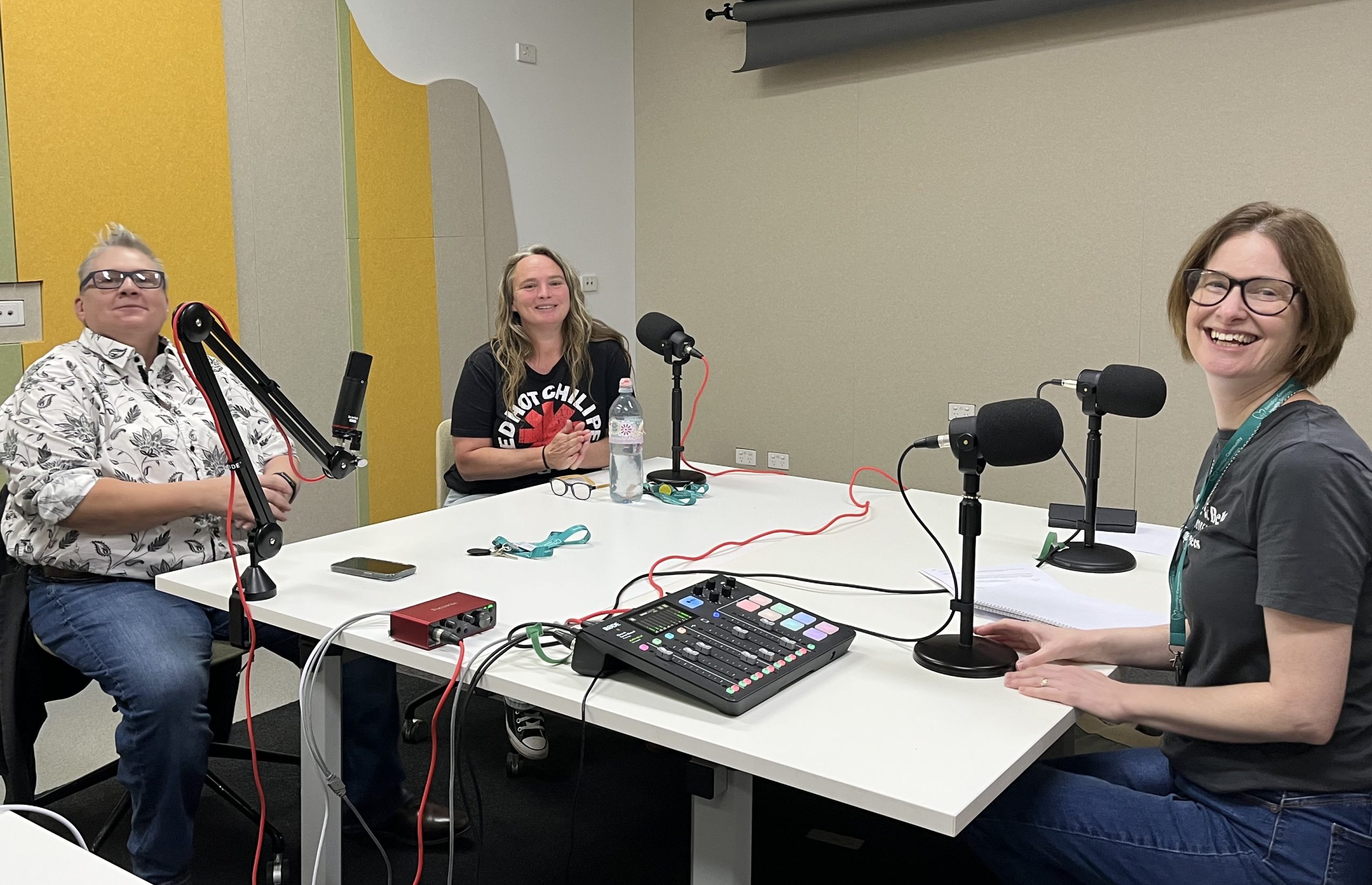To mark Global Peer Support Day, two BCHS peer support workers offer insight into their unique roles.
“Peer support work is so powerful,” says BCHS peer worker Angela Thomas. “It’s not about telling someone what to do, it’s about walking alongside someone who truly understands.”
Angela is one of three dedicated peer support workers at Bendigo Community Health Services. The health service utilises this often-unseen workforce across its Alcohol & Other Drug (AOD), Mental Health and Loddon Children’s Health & Wellbeing Local services.
“I know firsthand how isolating it can feel when you’re struggling with alcohol and other drugs, mental health or simply life’s challenges,” Angela says. “Peer support is built on shared experience… it helps people feel less alone, builds confidence and encourages people to access other supports – whether that’s counselling, detox, housing, or just finding community again.”
Fellow peer support worker and Family Engagement Lead Caity Woods agrees.
“I utilise my real-life experiences as a parent of a disabled and neurodiverse child to help parents feel less isolated while they are going through the diagnosis process for their own child,” she tells. “The diagnosis space can often feel very isolating and overwhelming… having a non-judgemental, non-clinical lens can make a huge difference in client experience.”
Lived experience is an essential and critical part of a peer support worker role, in both an official and unofficial capacity. It can create lasting change for someone seeking help, says Senior Leader of Insights and Analytics Jo Rasmussen.
“Peer support workers can be a role model for recovery,” they say. “Access to peer support has been shown to enhance hope, empowerment and social connection for clients. In addition, peer support also has a positive impact across systems, with evidence that it can enhance service effectiveness, reduce hospital admissions, improve engagement and outcomes, and fosters a recovery-oriented culture.”
Embedding workers like Angela and Caity within the services they deliver is emerging as best-practice for organisations around the globe, Jo says. It’s a move they, Caity and Angela all welcome.
“I think back to my own experiences, and how helpful it would have been to have someone in my corner,” Caity says. “[Someone] who was able to walk alongside our family and know that we will be okay, and that my feelings were normal, and didn’t represent the quality of parenting I provided to my children, or the mother I was.”
“For me, peer support isn’t just about sharing my story,” Angela says. “It’s about using my experience to inspire hope, offer practical strategies, and remind people they are not alone. Recovery is possible, and connection is the key that helps unlock it.”
Global Peer Support Day is October 16. For more information visit peersupportworks.org
